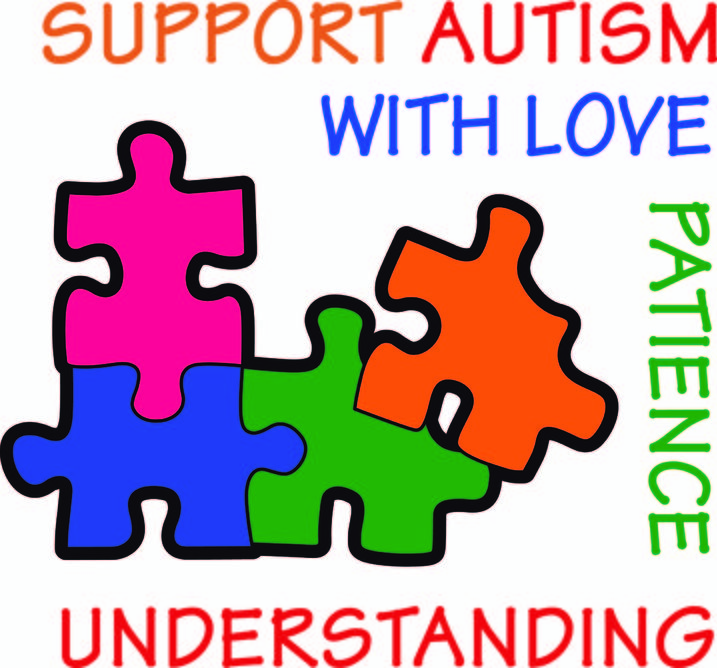Understanding Autism
The first time that it was suggested that my daughter’s differences were due to bad parenting was when she was three years old.
Every parent has had those moments where we’re judged for a tantrum or eating habits, but parents are also told that their children would be normal if they’d just mothered them correctly. Better discipline. More discipline.
When she was six, I was informed that the school didn’t think they could expect much from her or me because I didn’t make much money. When she was eight, the teacher told me that not all children are going to be smart, especially those whose dads don’t live with them.
That same week, my daughter went with me to an organic chemistry review and started naming the molecules based on their structure. Her autism diagnosis didn’t come until later, which is common for girls who are high functioning. Delayed diagnosis is also common for children of color.
It’s frustrating to me now, to think of how much time I spent trying to do a better job, to guide her appropriately toward better social graces so school children and teachers would accept her when these same children and teachers are constantly benefiting from the work of people with autism just like her.
- “The Geek Syndrome,” an article by Steve Silberman, discusses how people with autism may be drawn to silicon valley—are these teachers using tools invented by an engineer with autism? The children wouldn’t be playing Pokémon if it weren’t for creator Satoshi Tajiri’s obsessive childhood need to catalogue every insect on his island.
- Sir Isaac Newton struggled to speak verbally, yet wrote eloquently, and was so devoted to routine that he would lecture to an empty hall if no students appeared.
- Charles Darwin is thought to have shown signs of autism, as did Thomas Jefferson. “We hold these truths to be self-evident, that all men are created equal, that they are endowed by their Creator with certain unalienable Rights,” becomes more poignant when one considers that the author may have had autism.

Autism
How would society be different if their parents had somehow successfully managed to discipline them out of autistic tendencies? How diminished would our society be?
My daughter is now an eloquent and ambitious teenager whose life has only been enriched by her autism and her upbringing. She is fortunate that she can learn about social interactions in the way that other children learn algebra, but when she still occasionally bursts into tears at sudden loud noises, other children aren’t taught to show her the same respect that she shows them.
- Are the teachers and parents of children without autism discussing how to be kind to people don’t have a visible disability but who act differently in public?
- Why is it common to exclude children like mine, to gossip about them and their parents, then play on smartphones invented by people like her?
My daughter spends hours every week learning and practicing how to make the people around her feel comfortable. Autism has always been part of normal human variety, just like black or blonde hair are normal human variation. It’s time for everyone else to learn how to make people like her feel comfortable and accepted as well.
Tips for Interacting with a Person who may have Autism:
- Accept unusual behaviors. It’s the responsibility of the caregiver to teach the child with autism about how to behave, not yours.
- Be aware of sensory sensitivities. You’d struggle to focus on conversations, too, if your clothes felt like sandpaper. If someone with autism tells you that the music is way too loud, believe them and realize that their senses are amplifying sound to the point of discomfort.
- Speak directly. Euphemisms, hints, and subtlety will be completely missed.
- Smile. People with autism and their families need social interaction just as much as anyone else but tend to be isolated. Try not to avert your gaze from the screaming child, but give the parents a friendly smile.
- Ask about their interests. And be prepared to listen. People with autism have a few restricted interests but are rarely encouraged to talk about them. If you spend ten whole minutes allowing a child who is obsessed with horses to really tell you everything she knows about horses, you will have earned a friend for life and made that child’s year.
- …but don’t be alarmed by conversation that doesn’t flow easily. Impaired reciprocal social interaction is a core diagnostic feature of autism. This means that taking turns in conversations doesn’t come naturally. Sometimes it’s very relaxing for someone with autism to have a conversational partner who doesn’t mind taking turns with monologues instead.
- Let the child be a child. Many adults with high functioning autism have learned how to manage social interactions well enough, just as my daughter has. Children with autism are still children and haven’t learned everything that they need to know yet. Allow them to be who they are and believe in their potential. Even those who are profoundly restricted by their autism as adults may someday contribute just as profoundly to society.
Author:
MaLaura Creager is a doctor of pharmacy candidate at the University of Colorado Skaggs School of Pharmacy and Pharmaceutical Sciences with an anticipated graduation date of May, 2017. She received her bachelor degree in biology from Utah State University in 2012. Her interests include underserved populations, pharmacists’ role in primary care, public health, and drug information.











